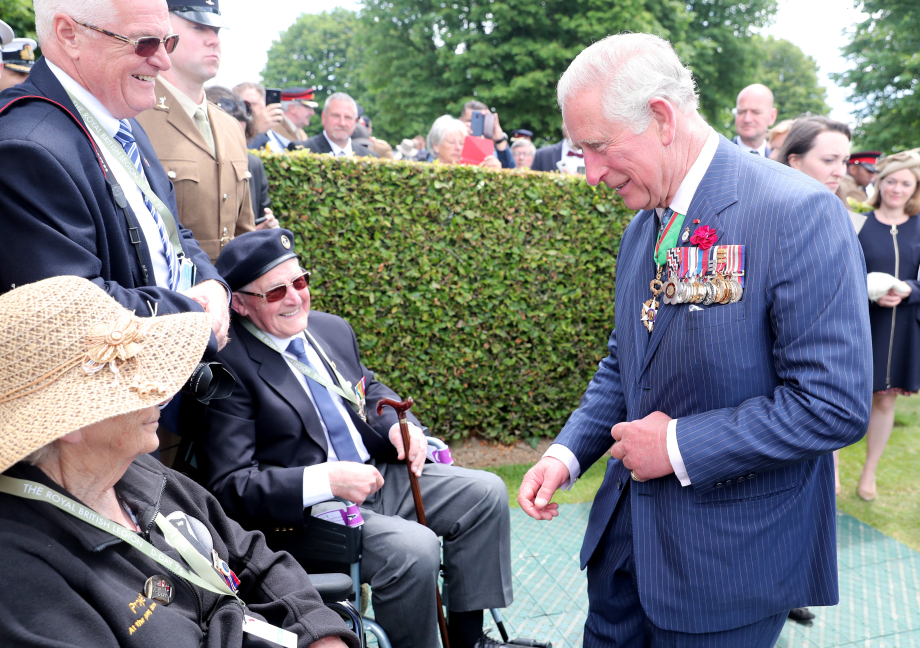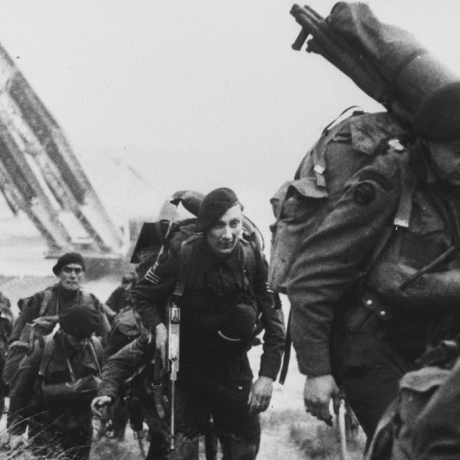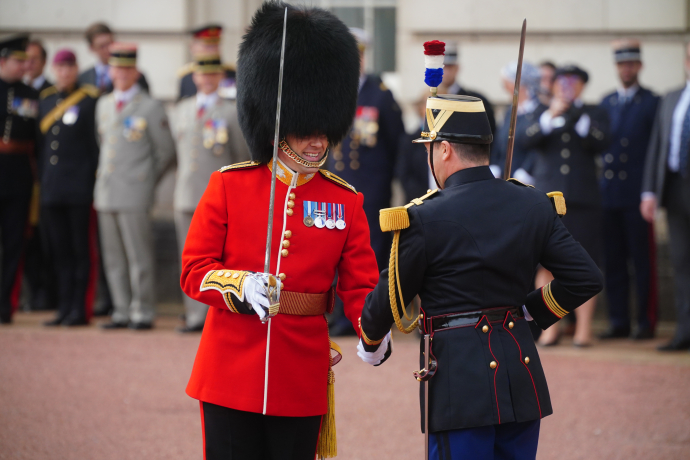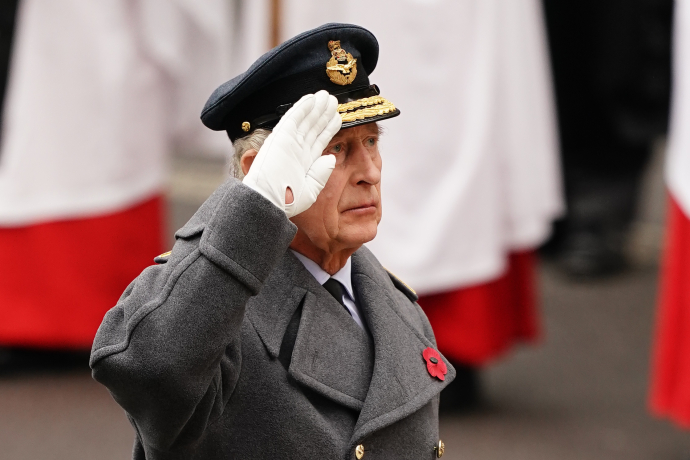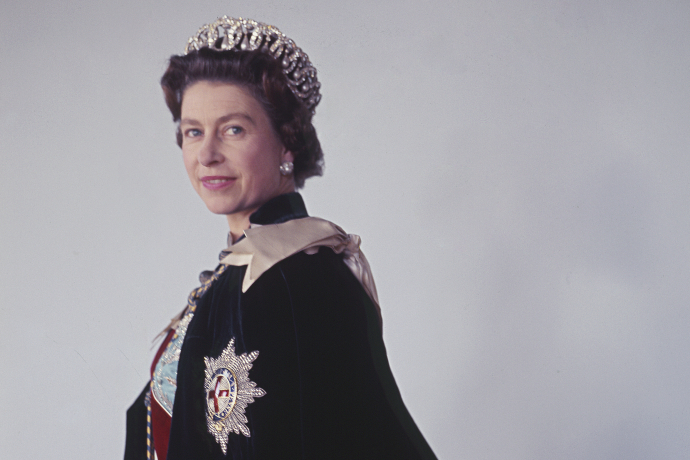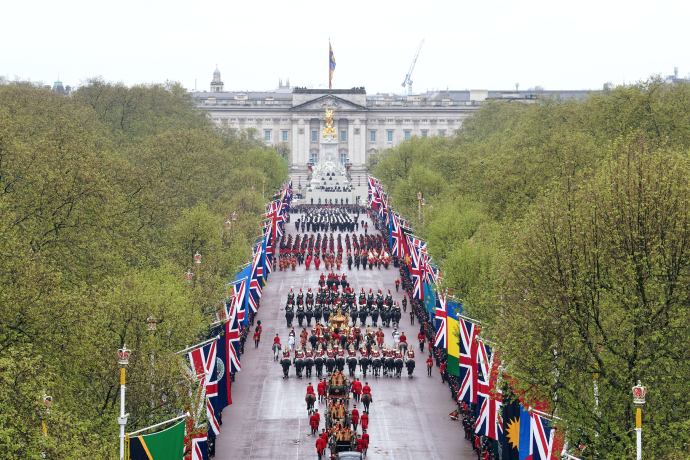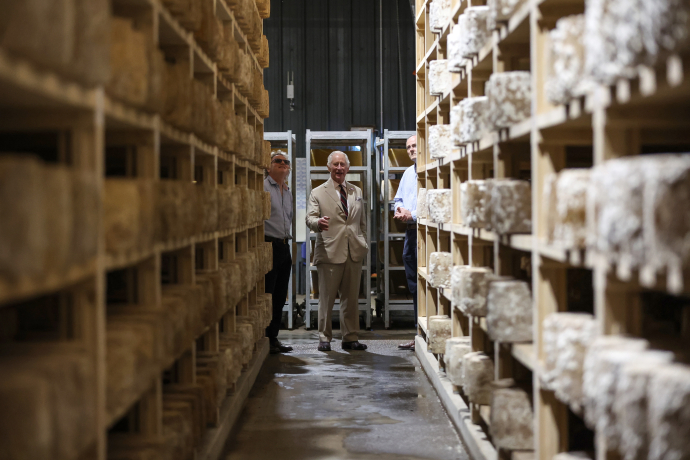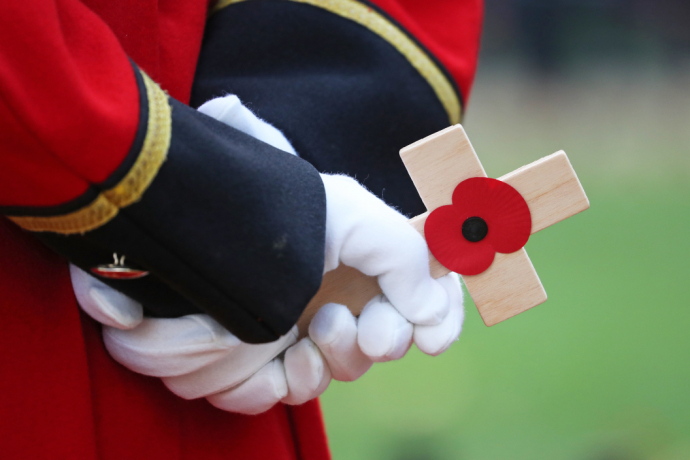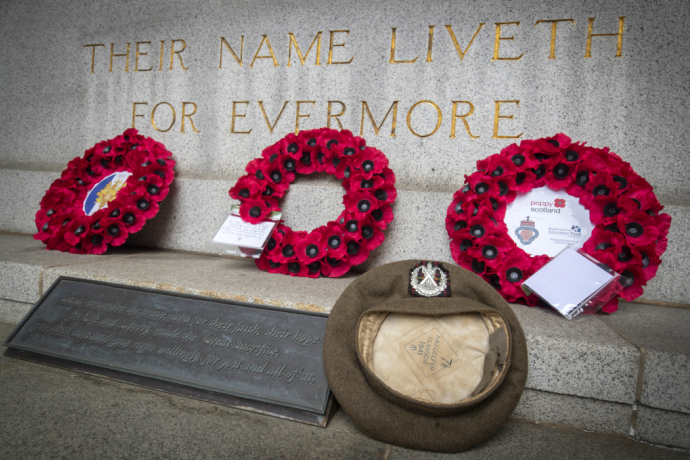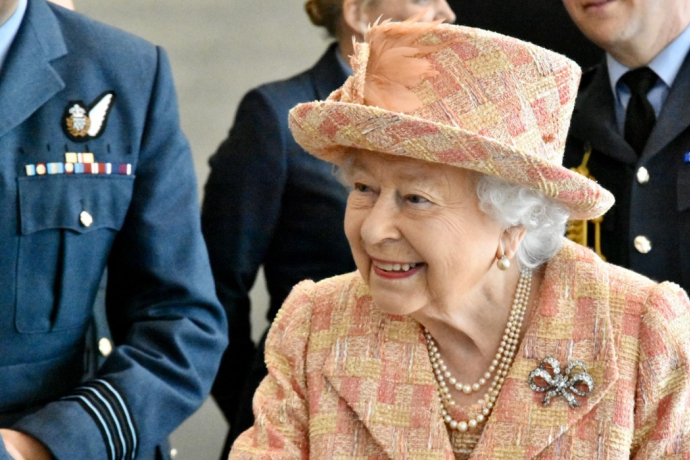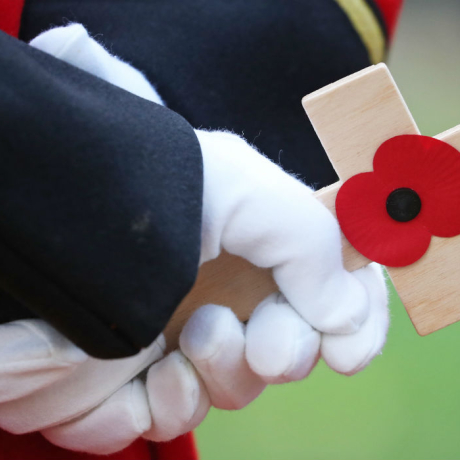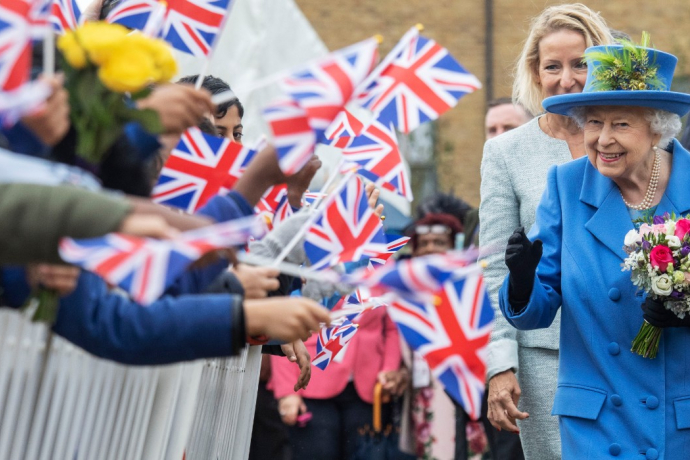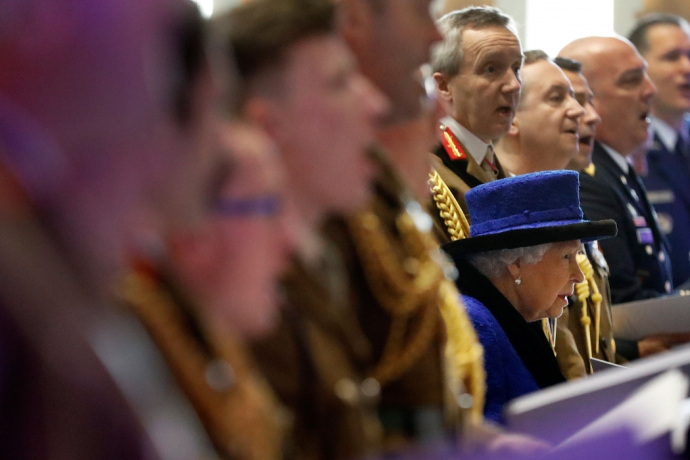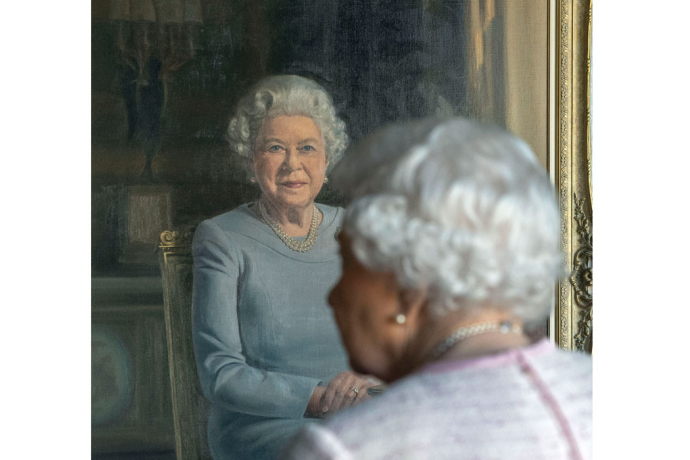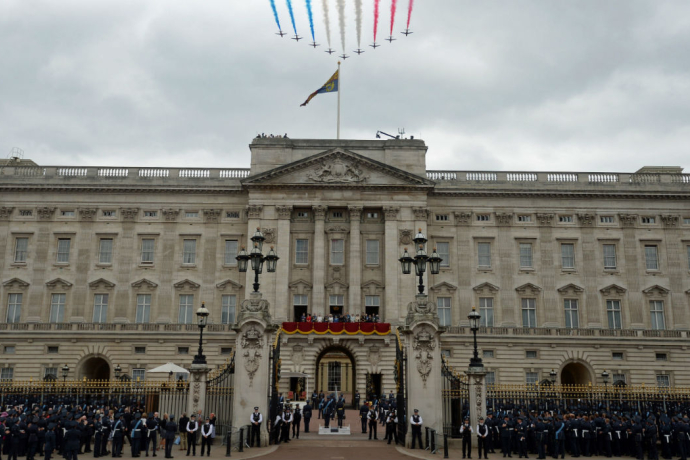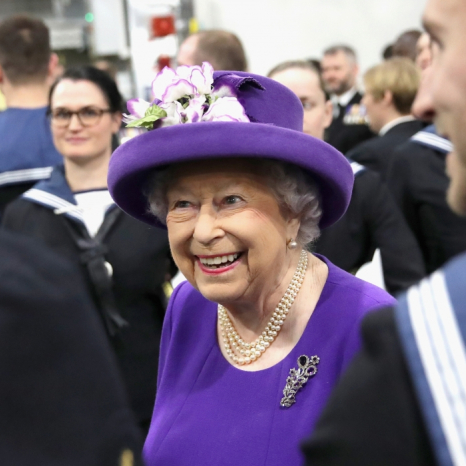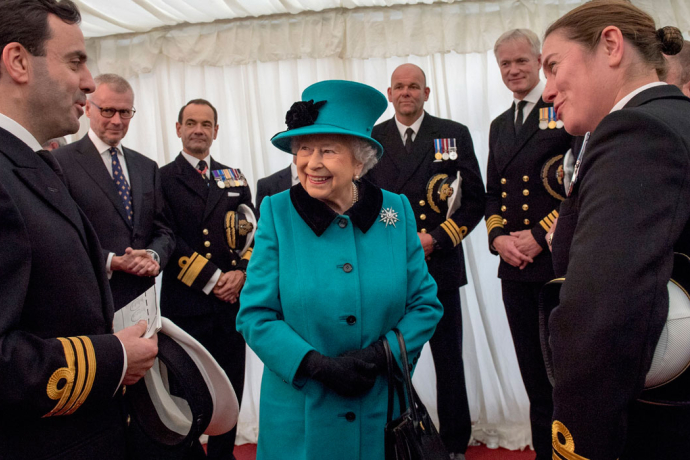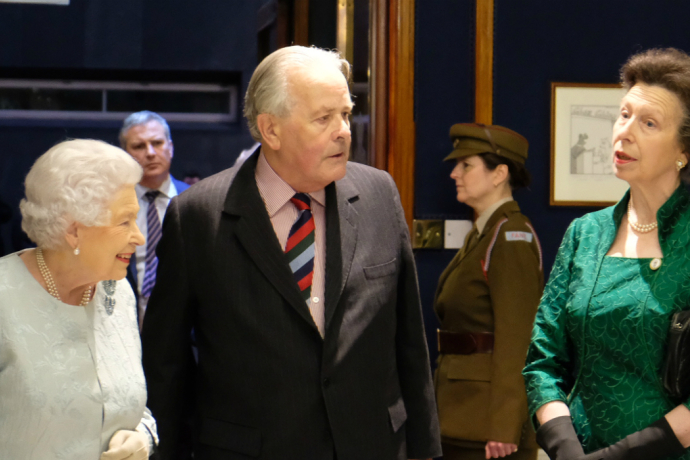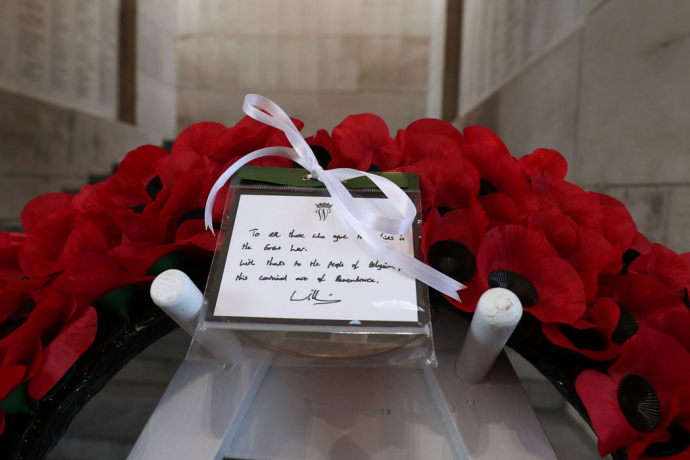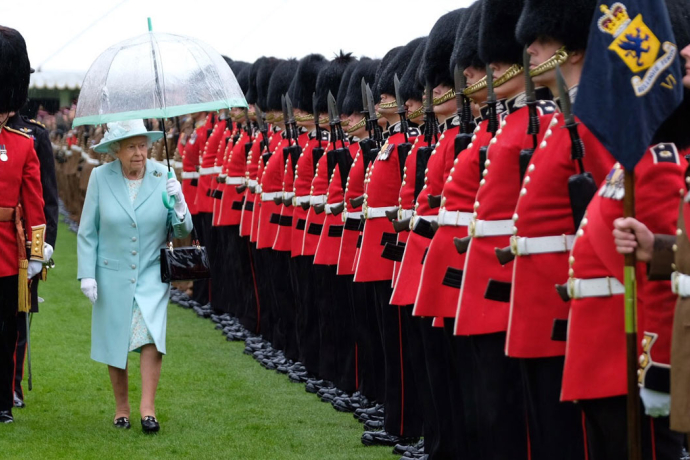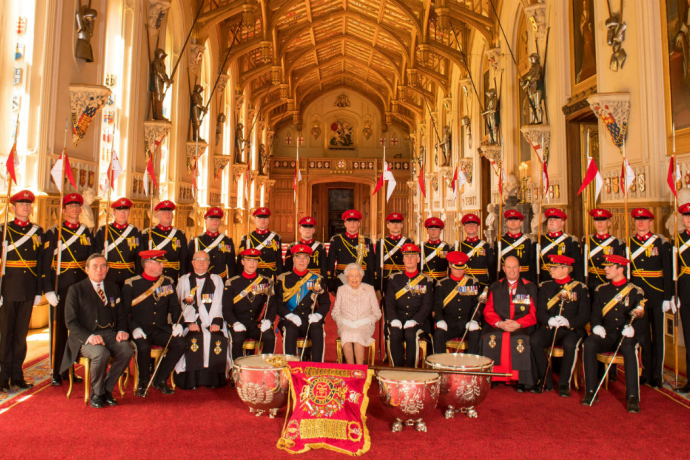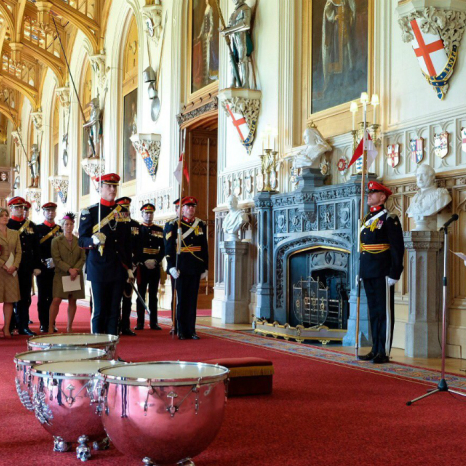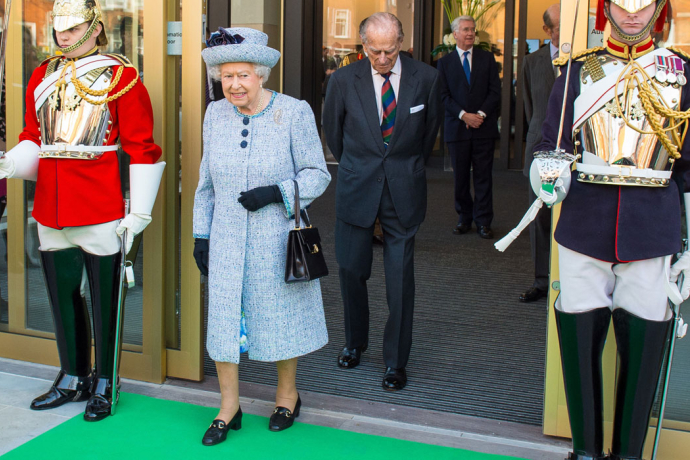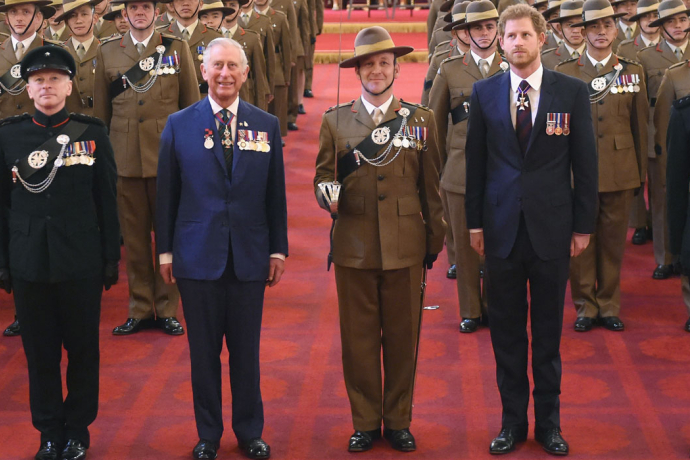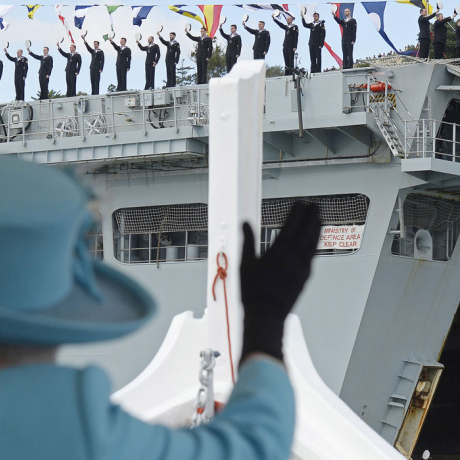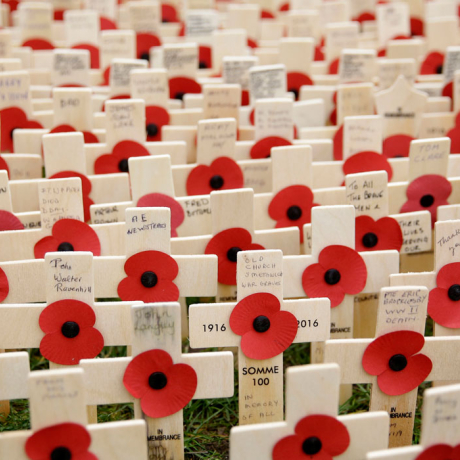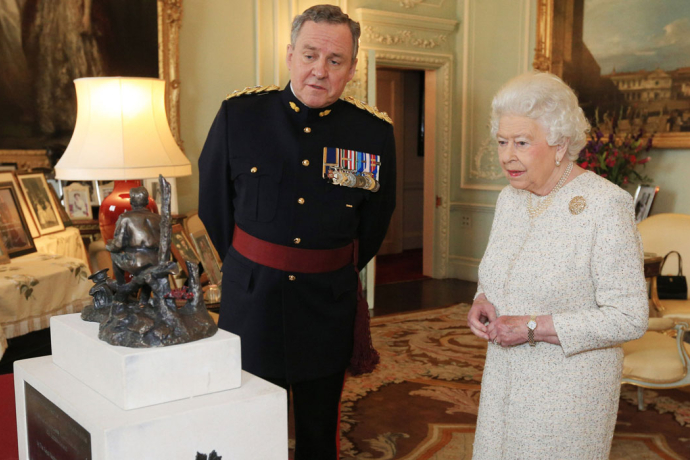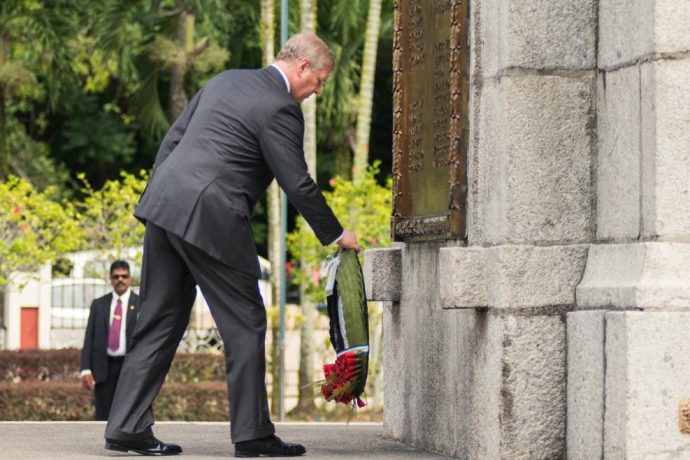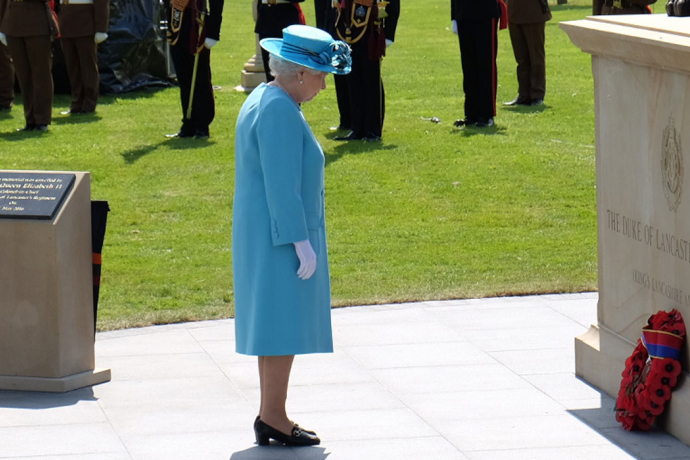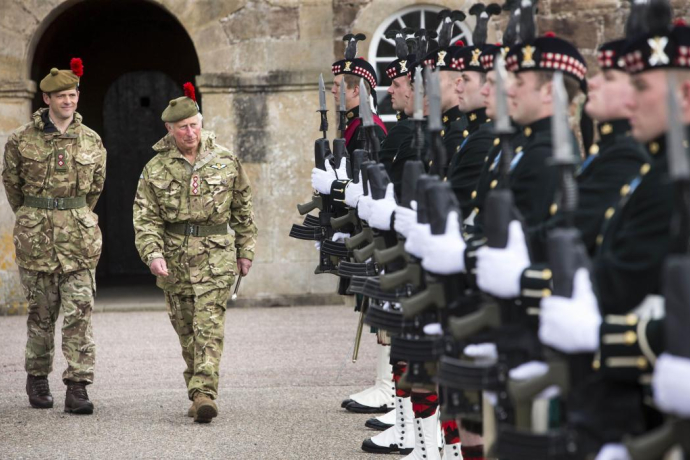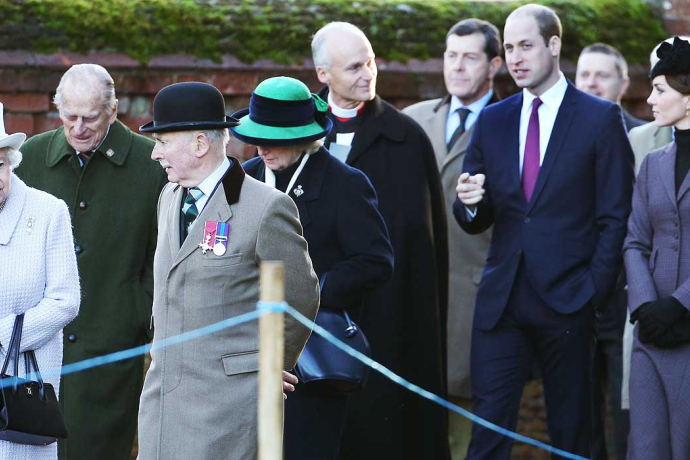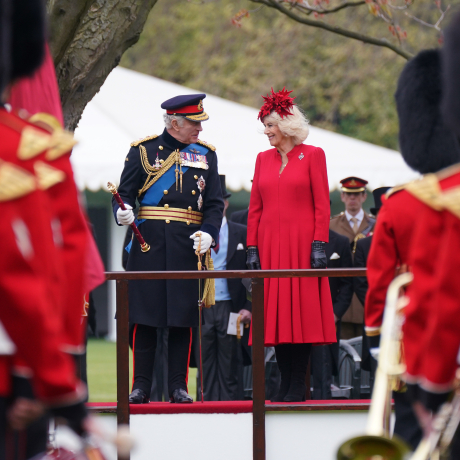- Wednesday 5 June
- Thursday 6 June
- Letters between The King and Churchill
- What were the D-Day landings?
- The King's speech on D-Day
- The Prince of Wales and The Duchess of Cornwall attend commemorations in Normandy
Wednesday 5 June
Today, The Queen and The Prince of Wales attended a National Commemorative Event to mark the 75th Anniversary of the D-Day Landings. The event took place on Southsea Common in Portsmouth, where much of the landing force left for Normandy.
The commemorations involved speeches from Heads of State whose countries were involved in the campaign, as well as stories from veterans and musical performances.
It is with humility and pleasure, on behalf of the entire country – indeed the whole free world – that I say to you all, thank you.
The Queen made a speech thanking all those who had taken part in the landings as the commemorations drew to a close.
Thursday 6 June
The Prince of Wales and The Duchess of Cornwall will attend the Royal British Legion Service of Remembrance in Bayeux Cathedral prior to attending the Royal British Legion Service of Remembrance at the Commonwealth War Graves Cemetery at Bayeux where they will meet veterans of the Second World War.
Letters between The King and Churchill
Both King George VI and Winston Churchill wished to observe the D-Day landings at first hand on board one of the Royal Navy ships. However, there was concern that a chance bomb, torpedo or mine could hit the ships they were on, leading to one or both being killed.
Here, The King and Churchill are seen with members of the Prime Minister's Cabinet.
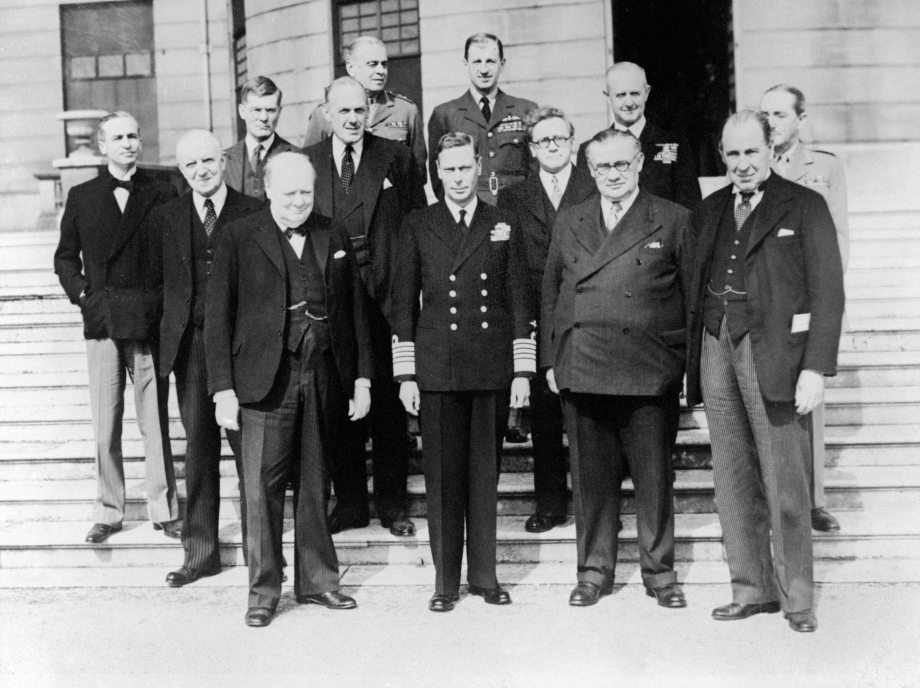
Aware of this possibility, the King reluctantly decided that he should stay in Britain, and wrote to the Prime Minister asking him to do the same. After a further letter, Winston Churchill grudgingly gave way to the King’s wishes and agreed not to go to the Normandy beaches.
Within two weeks both had crossed the Channel to inspect the landing sites. Churchill arrived on 12 June, and was met by Gen. Bernard Montgomery, Ground Forces Commander-in-Chief. The King arrived on 16 June, again met by Montgomery who explained how the battle was progressing.
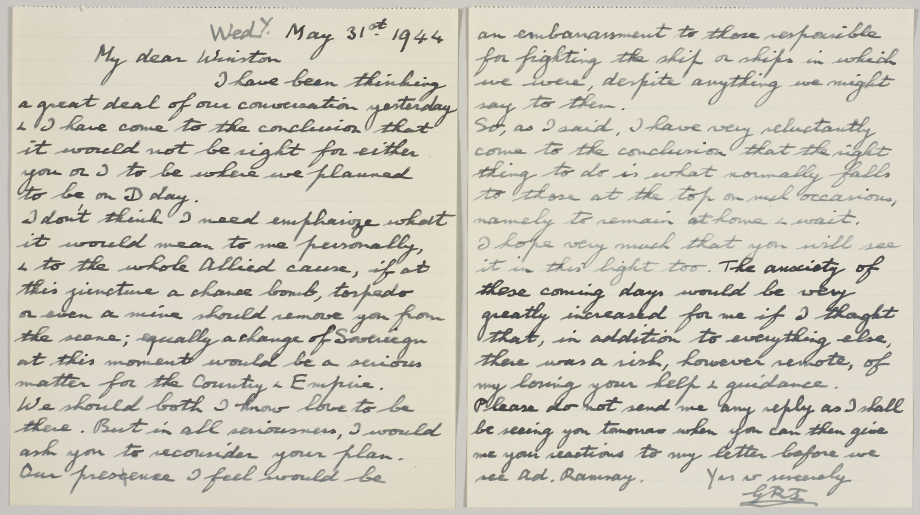
31 May 1944: George VI writes to Churchill explaining that ‘I have come to the conclusion that it would not be right for either you or I to be where we planned to be on D day…We should both I know love to be there. But in all seriousness, I would ask you to reconsider your plan’.
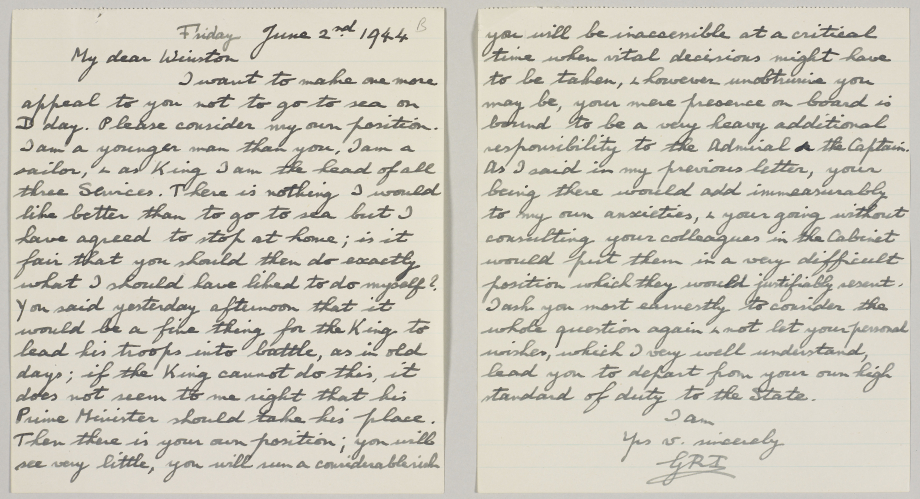
2 June 1944: George VI writes to Churchill, who still seemed determined to go, asking him ‘most earnestly to consider the whole question again & not let your personal wishes, which I very well understand, lead you to depart from your own high standard of duty to the State’.
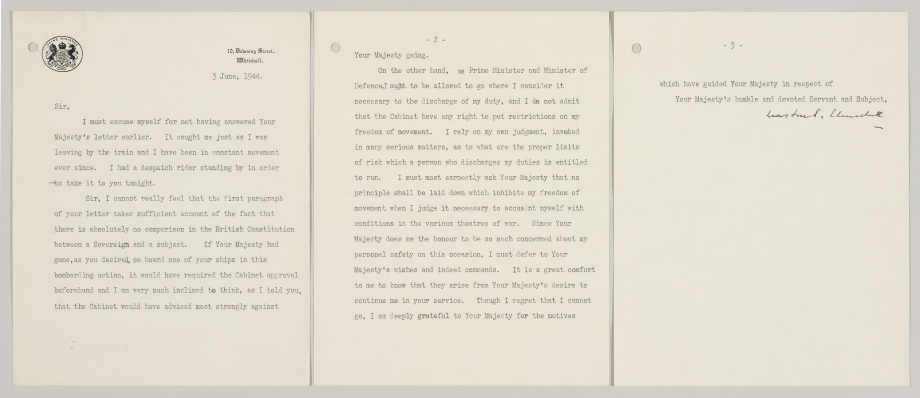
3 June 1944: Churchill grudgingly gave way to the King’s wishes and agreed to stay in Britain, writing ‘Since Your Majesty does me the honour to be so much concerned about my personal safety on this occasion, I must defer to Your Majesty’s wishes and indeed commands’.
What were the D-Day landings?
The D-Day landings were a huge military operation involving 7,000 ships and landing craft, 156,000 men and 10,000 vehicles which attacked German Forces in Normandy on 6 June 1944.
The landings, which ultimately cost the lives of approximately 10,000 Allied and German men, marked the beginning of the liberation of Nazi-occupied north-west Europe - Paris was liberated less than three months later.
The King's speech on D-Day
Four years ago, our Nation and Empire stood alone against an overwhelming enemy, with our backs to the wall. Tested as never before in our history, in God's providence we survived that test; the spirit of the people, resolute, dedicated, burned like a bright flame, lit surely from those unseen fires which nothing can quench.
Now once more a supreme test has to be faced. This time, the challenge is not to fight to survive but to fight to win the final victory for the good cause. Once again what is demanded from us all is something more than courage and endurance; we need a revival of spirit, a new unconquerable resolve. After nearly five years of toil and suffering, we must renew that crusading impulse on which we entered the war and met its darkest hour. We and our Allies are sure that our fight is against evil and for a world in which goodness and honour may be the foundation of the life of men in every land.
That we may be worthily matched with this new summons of destiny, I desire solemnly to call my people to prayer and dedication. We are not unmindful of our own shortcomings, past and present. We shall ask not that God may do our will, but that we may be enabled to do the will of God: and we dare to believe that God has used our Nation and Empire as an instrument for fulfilling his high purpose.
After nearly five years of toil and suffering, we must renew that crusading impulse on which we entered the war and met its darkest hour.
I hope that throughout the present crisis of the liberation of Europe there may be offered up earnest, continuous and widespread prayer. We who remain in this land can most effectively enter into the sufferings of subjugated Europe by prayer, whereby we can fortify the determination of our sailors, soldiers and airmen who go forth to set the captives free.
The Queen joins with me in sending you this message. She well understands the anxieties and cares of our womenfolk at this time and she knows that many of them will find, as she does herself, fresh strength and comfort in such waiting upon God. She feels that many women will be glad in this way to keep vigil with their menfolk as they man the ships, storm the beaches and fill the skies.
At this historic moment surely not one of us is too busy, too young or too old to play a part in a nationwide, perchance a worldwide, vigil of prayer as the great crusade sets forth. If from every place of worship, from home and factory, from men and women of all ages and many races and occupations, our intercessions rise, then, please God, both now and in a future not remote, the predictions of an ancient Psalm may be fulfilled: "The Lord will give strength unto his people: the Lord will give his people the blessing of peace."
The Prince of Wales and The Duchess of Cornwall attend commemorations in Normandy
The Prince of Wales and The Duchess of Cornwall attended the British Legion Services of Remembrance at Bayeux Cathedral and Bayeux Cemetery, where His Royal Highness laid the first wreath at the Cross of Sacrifice.
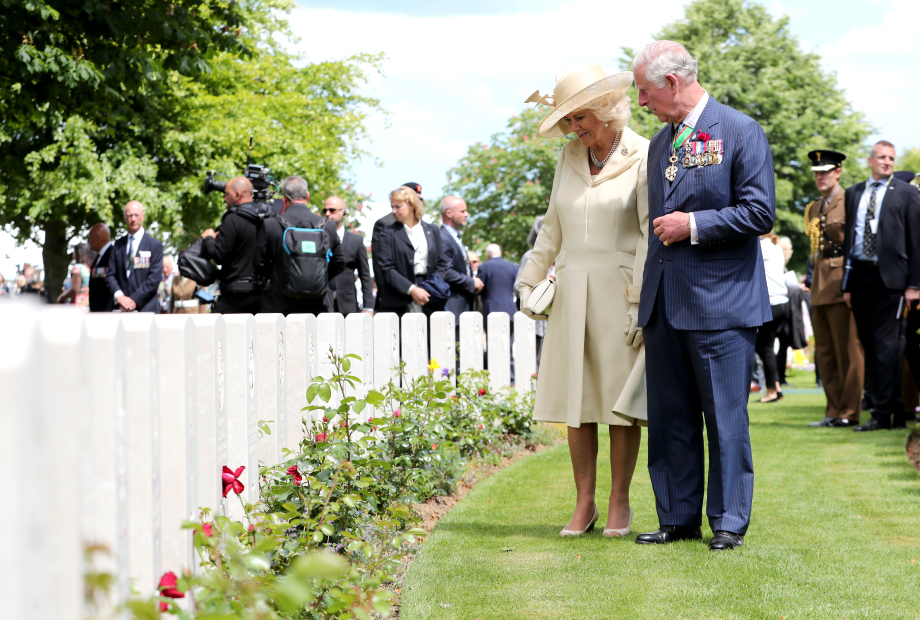
On 7th June 1944, Bayeux became the first European city liberated in the Battle of Normandy. The City was liberated by the 50th Northumbrian Division who had landed on Gold Beach. The men of the 50th Northumbrian are remembered on a plaque opposite the city cathedral.
The Normandy-Calvados and District Branch of the Royal British Legion holds an annual Remembrance Service at Bayeux Cathedral on the morning of 6th June.
This year's service, organised by the national Royal British Legion, was attended by 150 veterans of the Normandy campaign and the people of Bayeux. The theme of the service reflected on the loss of life on all sides as part of the D-Day operation. The service is considered to be one of the two official U.K.-French National Ceremonies of Commemoration for the 75th Anniversary of D-Day (the second ceremony will take place at Bayeux Cemetery). The Hereford Cathedral Choir sang at both services. His Royal Highness is Patron of The Hereford Perpetual Trust which supports both the Cathedral and the Choir.
Bayeux Cemetery is the largest Commonwealth cemetery of the Second World War in France and contains the burials brought in from the surrounding districts and hospitals. The Cemetery, which was completed in 1952, contains 4,144 Commonwealth graves of which 338 are unidentified and 504 are from other Nationalities (mainly German). The Bayeux Memorial stands opposite the cemetery and bears the names of more than 1,800 Commonwealth soldiers who died during the Normandy landing and advance to the Seine and have no known grave.
A tri-service Guard of Honour, supported by a military band, will be formed by the entrance to the cemetery and gave the Royal Salute as The Prince of Wales and The Duchess of Cornwall arrived, with the British Prime Minister, Theresa May, Mr. Philip May and Lieutenant-General James Bashall, President of The Royal British Legion.
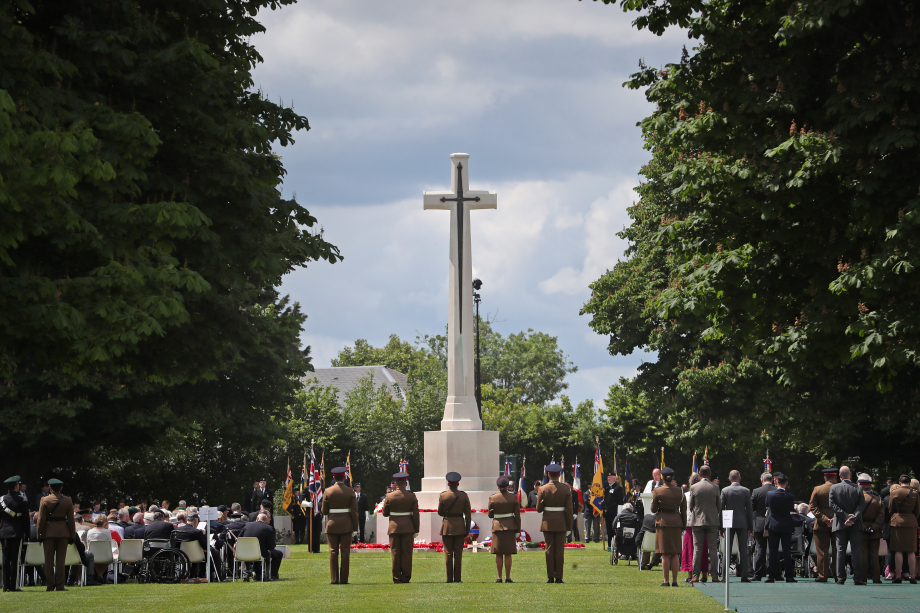
The service featured three readings of Veterans’ experiences. A bugler from The Rifles sounded the last post, after which a two minutes’ silence was observed. The RAF Battle of Britain Memorial Flight performed a flypast.
Following the flypast The Prince of Wales lay the first wreath at the Cross of Sacrifice. Lieutenant-General Bashall and Sir Timothy Laurence, Vice Chairman of the Commonwealth War Graves Commission also lay a joint wreath. The service concluded with 200 veterans laying their own wreaths in honour of their fallen comrades.
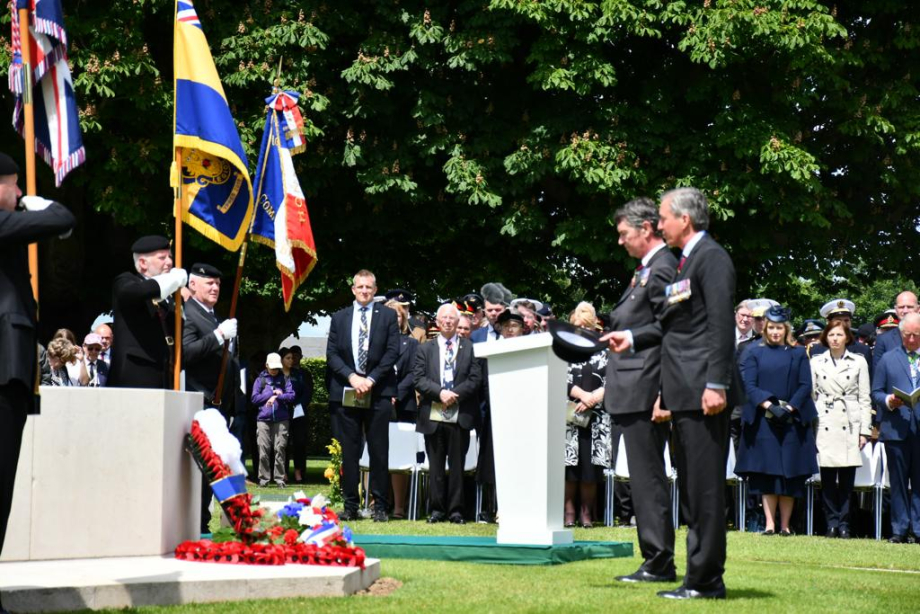
After the service, The Prince and The Duchess met veterans and international dignitaries, including members of the Queen’s Own Rifles of Canada, of which Her Royal Highness is Colonel-in-Chief, and those involved with the Normandy Memorial Trust, of which The Prince is Royal Patron.
